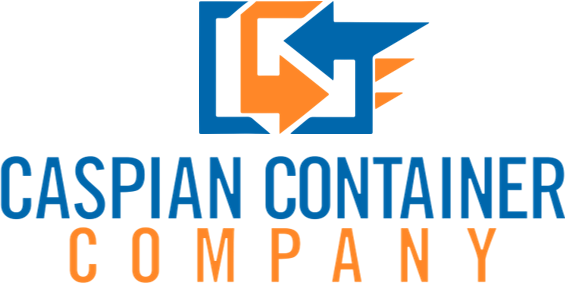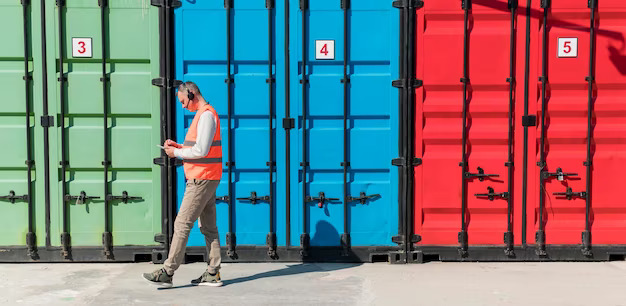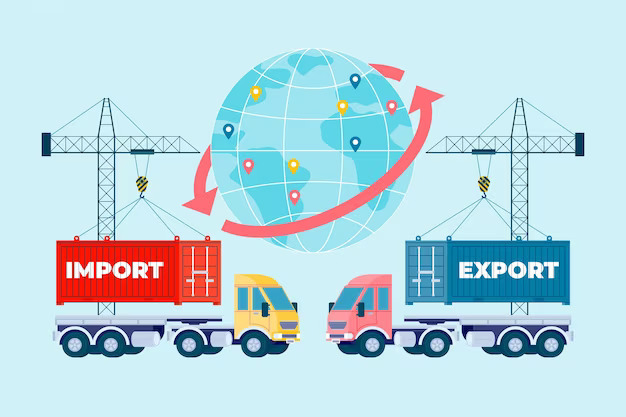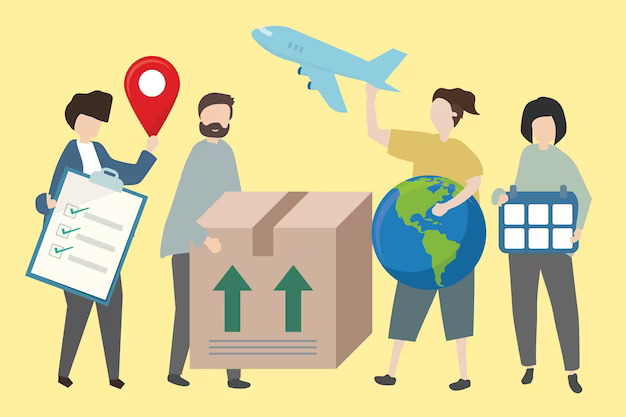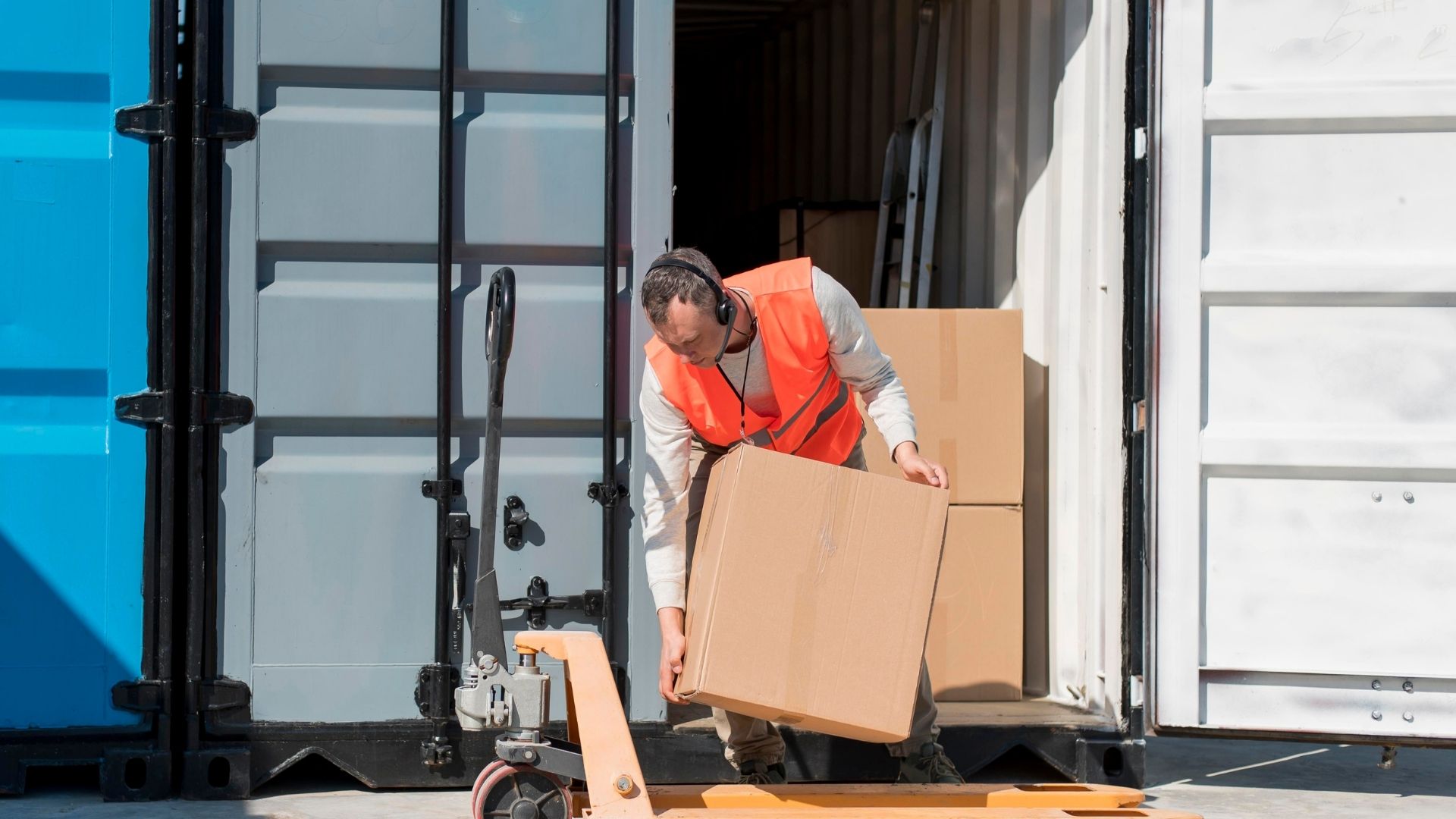If your business reigns on the global retail landscape, or you own an enterprise that involves delivering goods to warehouses or customers, transporting shipments efficiently and cost-effectively might be at the top of your priority list. However, if you are stuck in the never-ending debate between what’s the best freight forwarding method for moving your goods from one location to another, we might have some info for you!
Selecting the right way for freight forwarding is crucial because high freight costs can swiftly erode the profit margin on goods when businesses thrive on making profits. Currently, international transport and logistics service providers offer three prime possibilities, including land, air, and sea transportation. In case you are scrambling between these three options, it’s crucial to understand that many factors determine which mode of transportation would work best for you.
From the urgency of your shipment, and the preferred journey time to the types of goods, and the size of the containers, it’s essential to be aware of the specifics and then decide which freight forwarding method best matches your demands. Fret not! Here’s our take on the subject matter. Read on to find out what is best for your transportation needs.
Air Freight
Air Freight moved around 69.3 million metric tons of goods by the end of 2022. Air cargo is one of the most efficient ways to deal with supply chain challenges because it serves the demand for speed flexibility, and efficiency.
There are many pros of air cargo, including:
-
It’s the fastest form of transit. So, if you want to deliver urgent or time-sensitive consignments to small and medium-sized cargos, air freight is an excellent option.
-
It’s less elaborate than other methods like sea freight, and regulators require relatively less documentation.
-
When we are talking about air cargo, security is top of the line, which makes air freight an excellent way to combat high prices on expensive freights that meet size limitations.
-
Airlines tend to maintain a stringent schedule with few delays, so you can rest assured, that your shipment will follow the pre-specified ETA.
-
However, air freight has its share of cons as well:
-
For one, it relies on consistent passenger flight schedules. Although these schedules are back to normal now, some incidents might decimate the operations of these schedules, like the restrictions during the pandemic.
-
Secondly, the cost of air freight is more than any other freight shipping method in a typical market.
-
Working with air cargo invariably and implicitly means understanding the size and weight limitations. Often, regulatory bodies limit what airlines can and cannot transport. For instance, lithium batteries or any oddly shaped and bulky items cannot be transported by air, which makes options limited for business owners. Endnote: Air shipping might work if you are looking for a swift and reliable delivery service with minimal risk.
Sea Freight
Do you know sea freight accounts for around 90% of all transported goods, 70% of which are shipped as containerized cargo?
Freight forwarders who deal with sea freight are best for international transport. Believe it or not, in our professional opinion, international sea freight is one of the most economical and reliable ways to transport goods. It is best for dense, palletized shipments as the freight is calculated on the shipping container’s volume. In freight forwarding services over the sea or ocean, there are two options:
-
- FCL or full container load, where the shipping container is filled, and
-
- LCL or less than container load where you don’t need the full capacity of the container
There are many benefits of freight forwarding on the seas. Some of them include:
- Competitive rates. Typically, the rates of sea freight are four to six times less expensive than air.
- Global reach. Ocean freight allows shippers to move goods on a local scale when time isn’t critical for their shipping operations.
- Depending on your budget or preferences, you can select the quantity and dimensions of the goods, which wasn’t possible in air freight.
- Great for heavy, bulky, or oversized cargo.
- If you have to ship hazardous materials, ships are the safest because they can carry goods safely with carriers that lock and seal containers during transport.
- Ocean freight is a greener form of freight shipping because ships leave a small carbon footprint, as compared to air freight.
But, ocean freight also has its share of drawbacks:
- Relatively slower than air freight, which can be a significant disadvantage for businesses with time-sensitive shipping deadlines
- Risks of containers experiencing delays in ports because they cannot load/unload cargo.
- Chaotic and unprecedented conditions due to port congestion, labor shortages, and container shortages.
-
Endnote: Moreover, sea freight works well as a freight forwarding option for enterprises that want to ship on a budget, but it can be a bit unpredictable at times, which is a loss for enterprises that cannot afford delays.
Road Shipping
In road shipping, trucks move goods via FTL (full truckload) or LTL (Less than Truckload) shipments. Wondering what are the advantages of freight transportation by road? Here you go!
- Efficient for shorter distances, saving time and costs.
- Flexibility to reach destinations with limited infrastructure.
- Real-time tracking and monitoring capabilities.
- Road networks often offer seamless connectivity between regions.
- Cost-effective for smaller shipments or localized distribution.
- Adaptability to various cargo types and sizes.
However, there are some disadvantages as well, including:
- Susceptible to traffic congestion, leading to delays.
- Limited capacity for large-scale shipments compared to sea transport.
- Vulnerable to weather conditions affecting road operations.
- Inherent risks in terms of accidents and cargo damage during transit.
-
Endnote: Freight forwarding by road is excellent for businesses looking for cost-effective options, but it can incur the risk of damage, and the speed of delivery is relatively slow, so road freight might not be an ideal alternative for enterprises working on a critical timeline.
Searching for a reputed freight forwarding company to handle your valuable consignment? Want to discuss your options with the experts about shipping your cargo? Reach out to the freight forwarding professionals at caspian container company and discover what's best for you!

